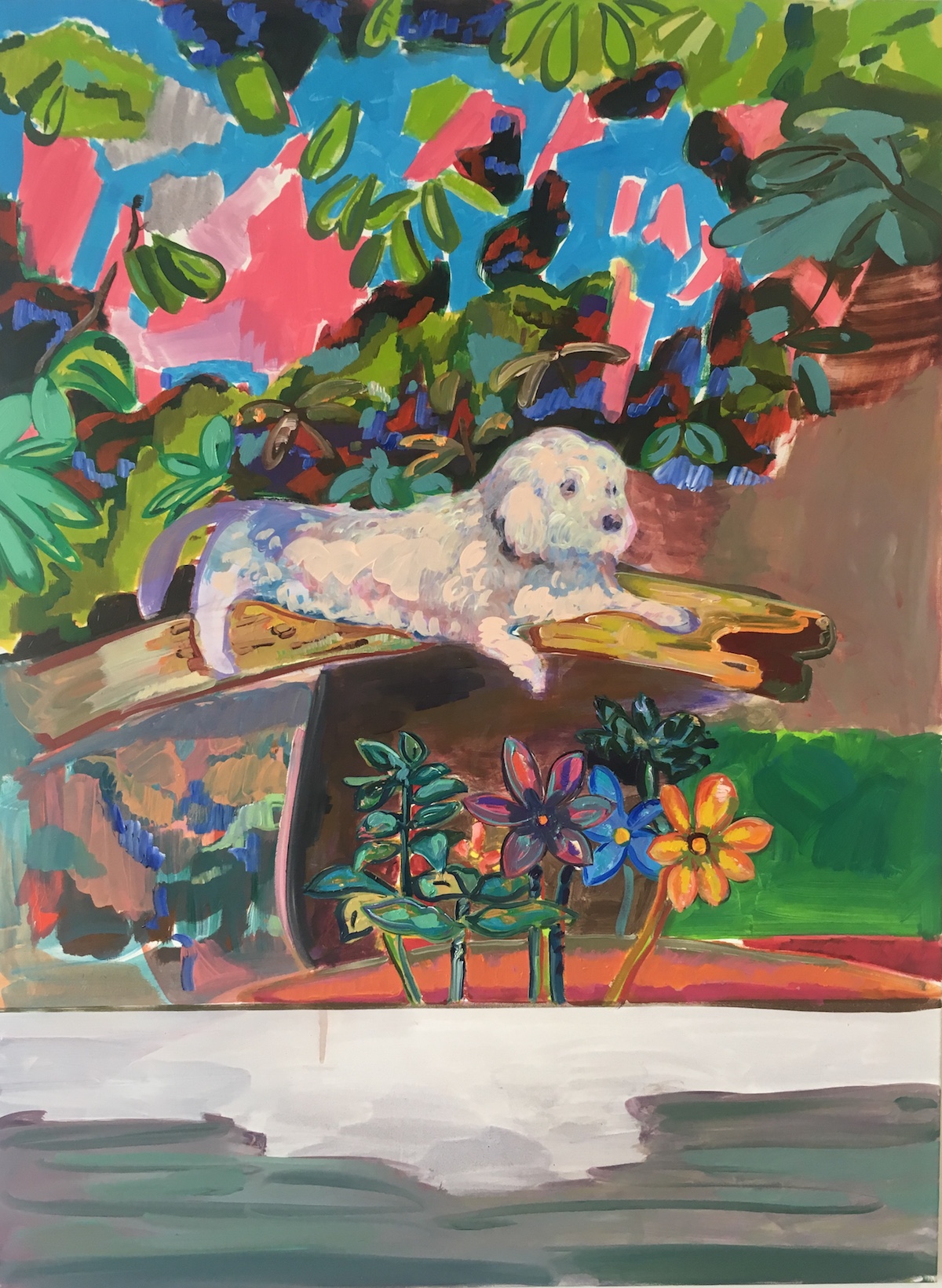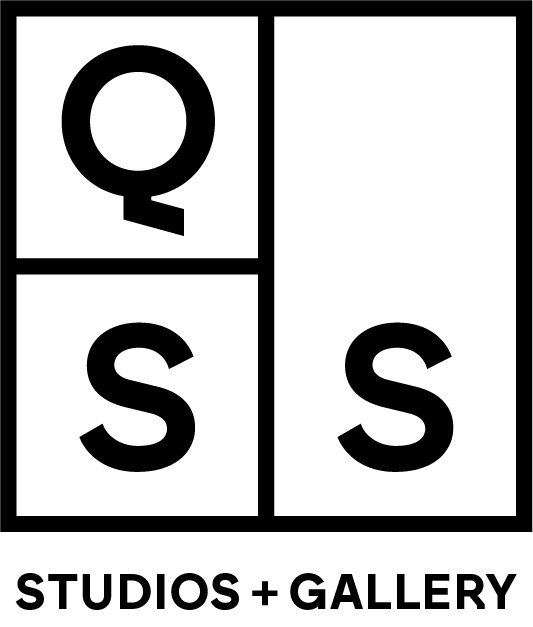What is your typical studio routine?
I try to keep my studio routine constant, even when I don’t have any exhibitions or deadlines. I aim to be in the studio five days a week. I get in around 10am and work until 7pm.
Once in the studio the only real routine I have is caffeine intake and what time I take lunch. I am an avid podcast listener and music is a really important part of my studio environment. I tend to listen a lot to electronic music, just because I like it – everything from minimal drone to ghetto tech, anything as long as it’s not classical music.
The work I do in the studio is 99% painting; no drawing, no researching ideas/interests and especially no admin. I use drawing as a method of researching in and of itself, with this activity a constant outside of the studio aiding and often becoming the starting point for paintings within the studio. I am a naturally slow painter and I tend to erase or destroy nearly as much as I make, which might seem odd, but it is how the paintings emerge upon the canvas surfaces and this all takes time.
Socially, historically and perhaps geographically, Belfast has many ‘unique’ attributes that define it as a city. Can you describe one positive and one negative aspect of working in this ‘unique’ place.
Having travelled quite a bit as a working artist I can definitely see and clearly understand the advantages and disadvantages of basing yourself here. On the positive side Belfast as a city is still financially a relatively easy place to live and sustain a studio practice like mine when considering some of my peers in other cities. But then again on the negative side there are only a few real and sustainable outlets for selling work and grant support in Northern Ireland is at a minimum. It would seem that the city of Belfast wants to promote ‘culture’ but just not have to pay for it in any real way which unfortunately I have seen effect some really great artists and their potential.
Have you completed any artist residencies or are there any you aspire to?
Yes, I have done a few artist residencies over the years and most recently I was lucky enough to be awarded the Suki Tea Prize through Visual Artists Ireland to spend two months at the Centre Culturel Irlandis in Paris, which was a really great experience.
When I graduated from my MFA I was awarded the Irish Museum of Modern Arts Artist Residency Program. This was a really important residency for me as a young artist as it opened up my work to new audiences and I got to meet other artists, some of which have become lifelong friends. After the IMMA experience I spent a couple of years doing short -and -long term residencies; The Ballinglen Foundation, the Art Council NI New York research residency and Temple Bar Gallery and Studios membership residency to name just a few.
I know from experience the importance of artist residencies at different stages in your career and studio development. Personally, I have found that I have used the studios I have had on residency in completely different ways than how I would use my studio on a day to day basis at home. I am more inclined for example to use the time to explore the city, to research ideas, to visit and see exhibitions but most importantly I predominantly draw which becomes the starting point of work once I return home.

The full list of questions to choose from is given below:
1. What is your typical studio routine?
2. Was there a definitive point in your life that you decided to become a professional artist?
3. Many of us at QSS have previously studied at Ulster University at different stages of our education (BA, MFA, PhD). How did this experience influence your later attitude as a professional working artist?
4. Socially, historically and perhaps geographically, Belfast has many ‘unique’ attributes that define it as a city. Can you describe one positive and one negative aspect of working in this ‘unique’ place.
5. There are many arts journals, which would you consult regularly?
6. What role does social media play in the documentation/promotion of your own work?
7. Is there a difference, say, in being called an ‘artist’ or a ‘painter’/’sculptor’, ‘printmakers’? Do these distinctions matter?
8. How do you find an audience beyond the studio?
9. Have you completed any artist residencies or are there any you aspire to?
10. Can you name some of the contemporary artists you are interested in?

